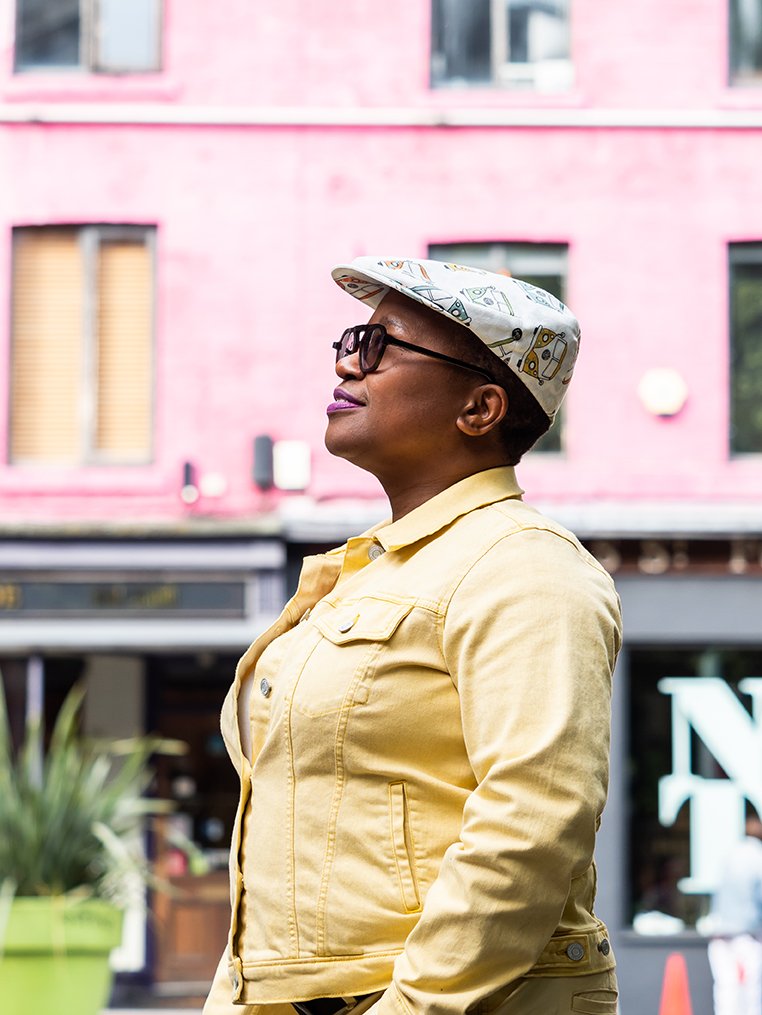Ageing with Pride🏳️🌈
How being outed led to belly dancing on the Nile.
Creating the world’s first calendar celebrating Black and Asian gay women.
Remembering friends lost to the AIDS crisis of the 80s and 90s, dealing with survivor’s guilt - but also appreciating the joys of life.
Interviews and photos for the Centre for Ageing Better.




Claud
“I didn’t see anything that I could identify with when I was younger. Growing up in Bolton, there weren’t any images of people like me. That made being black and gay seem abnormal,” says Claud, 53.
“If a movie or pop star came out as gay, that would be the end of their career.”
“My friend Paula and I set up a lesbian club night called Black Angel, a safe space for people of colour. The imagery around it was huge thing for us - representation is very, very important.”
The night started off in venues in Manchester’s Gay Village in the late 1990s and Claud came up against racial prejudice. “Some of the things that came out of the club owners’ mouths… I hope it’s changed.” She moved the club night to venues outside of the village.
“This was also better for the women who weren’t out. If someone saw you being dropped you off by a taxi in the village, that was essentially you being outed.”
“We were visible on behalf of those who couldn’t be, for safety, or fear of family rejection.”
“We did a calendar one year, sponsored by the Terence Higgins Trust. The guy making it said it was the first LGBT people of colour calendar in the world. I think being seen is a political statement in itself.”




Mindy
Mindy, 69, was outed in 1983 when she was working as deputy head teacher in Hull.
Mindy moved to Manchester, starting a new career in adult mental health - and also took up belly dancing. “Real belly dancing is improvised - you express what this music has you feeling in the moment,” says Mindy. “When you dance like that, what you're really doing is exposing your true self. You are letting people see you, see your passion, see your fear.”
“What started off as a night class, now takes me all over the world, from Lesbos to Colombia, from the Netherlands to the Nile.”
“The opportunities I’ve had – and am still having – are a knock-on effect of what happened. I made myself a promise that I would never tiptoe around anybody on the issue of my sexual identity, ever again.”
“If I hadn’t been outed I’d probably be a retired headmistress - I can feel the powder blue oozing over me!”




Lizzie
“I grew up in Dorset on a farm. There wasn’t any information or positive LGBT+ role models available. Looking back to late teens, it was basically like a fog of confusion,” says Lizzie, 63.
“At one point I did try and find out if there were any places to meet other lesbians, but the nearest big town was Bournemouth. I thought ‘Oh god, that feels far too scary’ - the idea of getting a bus and going somewhere late at night.”
“The only thing I could come across was a book that was written in 1928 by a woman called Radclyffe Hall called ‘The Well of Loneliness’. It’s the most gloomy and negative portrait of lesbianism that you could think of. I thought ‘Oh dear! That’s not much help really’.”
“Coming to Manchester in 1980, it was easier to find things. There was a gay centre, it was in a really grotty part of town, but it existed.”
“There was also a chance of meeting other lesbians - hoorah!”


Linda
“I remember my first marriage at 19 to my ex-husband. When it came time to sign the registry, I looked over at my mum and thought, ‘What am I doing?!’” says Linda, 68.
“When I came out to my mum, she accepted me straight away. She said, ‘OK, I’ll just make the tea’.”
“I still imagine that when she went into the kitchen, she gripped the worktop with gritted teeth thinking, ‘Oh my God!’, but she came back in with the tea, like everything’s cool, no problem.”
“Outside of home, the same level of acceptance didn’t always exist. If you went to a gay club in the 1970s or 1980s, you’d have to creep down a side street and knock on a door then wait for someone to open the hatch. They’d take a good look at you (for safety) before deciding whether to let you in.”
“One night leaving a gay club, someone shouted at me, ‘You queer bastard’. I shouted back, ‘right on both accounts!’ then I ran like hell.”
“Next summer, nearly 50 years after my first wedding, I’m going to be marrying my partner, Anne. This time we’re doing it our way.”




Pip
Add interview




Ken etc
Add interview
